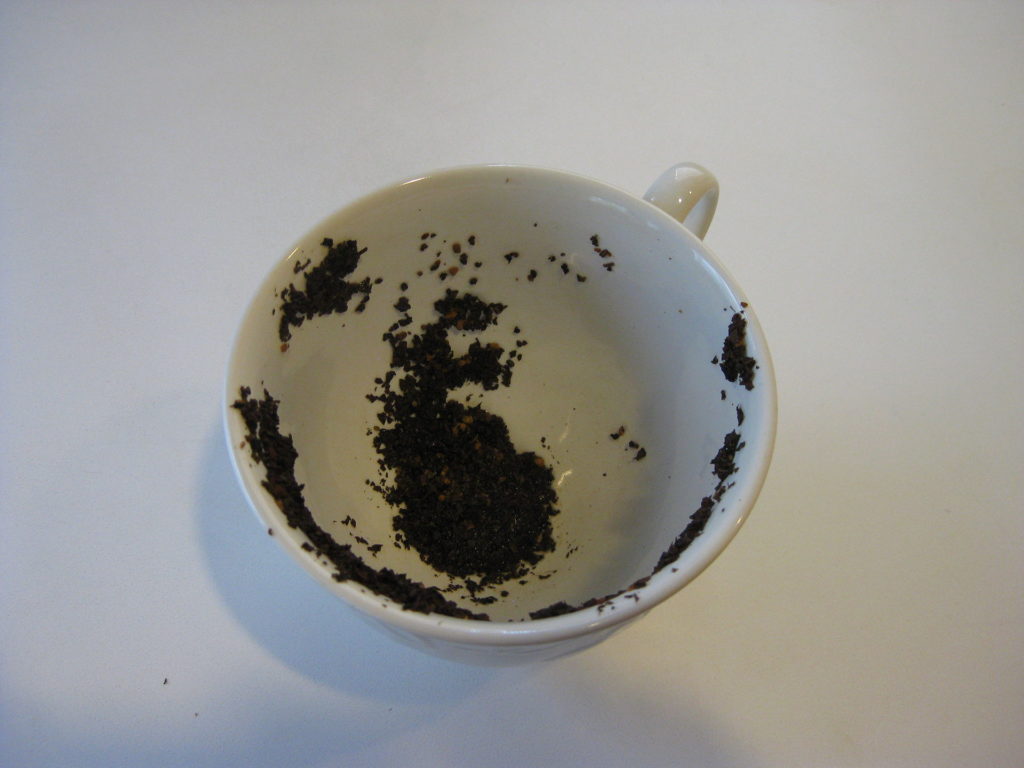
Hilary Biehl
Tea Leaves
She doesn’t really want to know. She just likes tea.
The heat against her palms, the rising vapor’s flux.
The objects: papered canister, pot, little cups.
The ritual. Each swallow of reflected sky.
But when the cup is drained, and what is left is only dust
in damp dark clumps, burnt umber diagrams of death and loss,
she always wants to look away. Don’t make a fuss,
she thinks, and tells their fate as if it’s something guessed
not quite seen, never inevitably known.
Something discerned in still-warm shifting tea leaves, not
cold stone. Bedeck bare truth with subtlety of thought,
or clients won’t come, and she’ll drink her tea alone.
She pours the hissing liquid till the pot is dry,
watches it darken in the cup. The last bit’s strongest.
She looks across it at the faces she’s loved longest.
She’d rather not know; but she really does like tea.
_______________
Hilary Biehl’s poems and short fiction have most recently appeared in Luna Station Quarterly, Expanded Horizons, Dappled Things, and Barking Sycamores. She lives in Santa Fe, New Mexico.
Editor’s Notes: These quatrains are in predominantly iambic hexameter (with variations) and an abba rhyme scheme. In the image, an empty tea cup is left with the dregs of spent leaves. In tasseography, the tea leaf reading is associated with fortune telling through symbolism; here , it shows a dog and a flying bird. The Encyclopedia of Occultism & Parapsychology, Fifth Edition, Vol. 2, edited by J. Gordon Melton, notes:
After a cup of tea has been poured, without using a tea strainer, the tea is drunk or poured away. The cup should then be shaken well and any remaining liquid drained off in the saucer. The diviner now looks at the pattern of tealeaves in the cup and allows the imagination to play around [with] the shapes suggested by them. They might look like a letter, a heart shape, or a ring. These shapes are then interpreted intuitively or by means of a fairly standard system of symbolism, such as: snake (enmity or falsehood), spade (good fortune through industry), mountain (journey of hindrance), or house (change, success).


I really like your poem. I have been doing Tea Leaf Readings for over 50 years, having been taught by my grandmother when I was 10. In fact the above photograph is one of my photographs taken from an actual reading I did in 2009. Somehow it got onto the internet and is now used in books; blogs and other sites without my permission and has even been claimed by another person to be their photo. In most of these entries everyone mentions the dog and the bird and noone mentions the obvious large symbol in the middle of the cup, probaby because it is not a common symbol that they can find in a symbol dictionary. It is actually my grandmother sitting reading tea leaves.